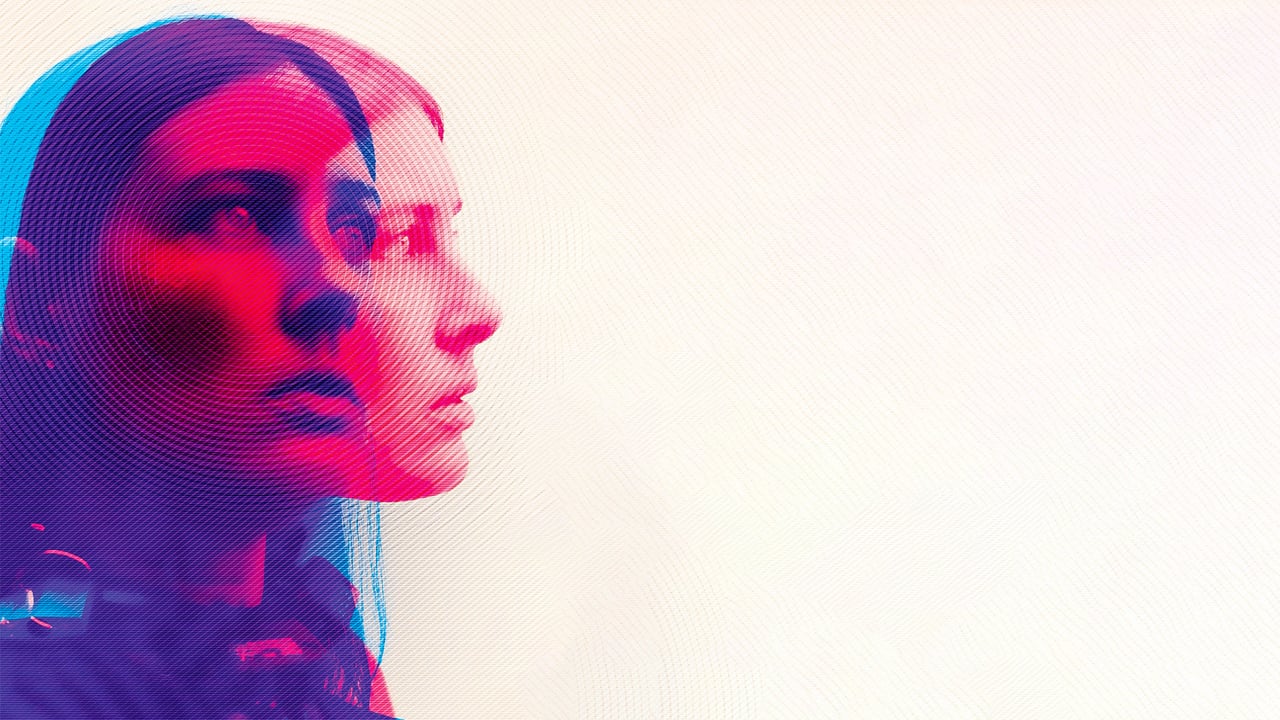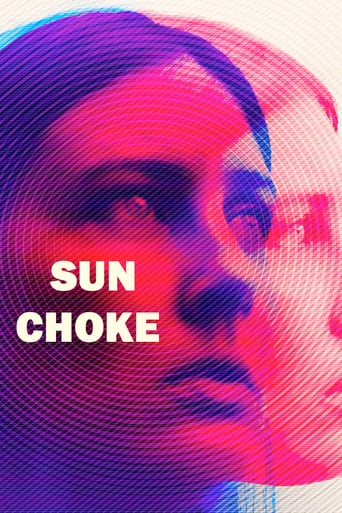

This movie was actually pretty incredible. It calls your attention using very little, leaving you to decide what's reality and what isn't. It's a successful movie - well and cryptically written, gorgeous and intimate cinematography, and a strange and daring story that is pretty hard to watch at times.I definitely enjoyed what this movie brought, how it gives us enough to estimate who this protagonist is - I'm not going to give anything away, but really what this movie ends up being is an inside to someone's personal hell. It's sad, dark, and even terrifying. Really. It's terrifying, it's expressive, it's raw. Doesn't hold off - and nothing, to me in the least, feels contrived. It all happens for a reason, whether it's really happening or not. It has some really powerful images that stick with you after viewing, things that make you think and wonder.I really recommend this film for indie lovers and for those who want to see something really dark and really psychological. The acting is great, and overall it's a beautiful and personal film about what this girl is going through and why. I ended up loving this film. See it for yourself. It's DEFINITELY not for everyone, with graphic nudity, violence, so on so forth, but it's all worth while. Great film that no one's heard of. Super intense, but has me thinking for a while after watching it - and planning another rewatch soon.
... View MoreFirstly, if you: Considered Lynch's "Lost Highway" / "Mulholland Drive" or Lyne's "9 ½ Weeks" to be pointless, plot less & boring drivel in any way; Prefer reading cereal boxes over poetry any day; Think that anything not plot driven is pretentious; Then: This one's not for you. Move on and spare us from yet another barrage of unwarranted "Boring" and "Goes Nowhere" posts and reviews identical to all those that litter every independent film's page. For the more adventurous viewer: Ben Cresciman's "Sun Choke" has absolutely no clear-cut links with the aforementioned films—they're the better-known examples that readily came to mind--but if you enjoyed some aspects of those, then the story-telling mode employed here will definitely not feel alien to you or be an obstacle to the film's many appealing qualities. And no, being a fan of poetry is not necessary, but keep in mind that this film, like a fine poem, demands a certain degree of patience, receptivity, and abandon if the viewer is to reflect any meaning upon the prudently crafted images that play upon our senses; if anything, this film positively drips sensuality, though one that never draws its potency from sexuality/eroticism albeit the actual, eye-appealing nudity, which there's plenty of. Of course, composition and framing are a big part of Cresciman's success in that respect, but it is in fact, contrary to most who've dealt with such a subject, the use of a highly-curtailed palette that moves heavily towards light and limited contrasts, rather than darkness, that establishes him as someone with a clear intent and a firm control over his medium; this alone is a refreshing change for the genre. Combine this with remarkable, understated performances and the overall effect hypnotizes as it seeks to quietly unsettle. Barbara Crampton discreetly gives life to a character none of us would want in our lives even if no one can satisfactorily explain why, and images of Sarah Hagan, who plays the unstable lead hauntingly, will surely linger in your mind for some time. Despite all that, I don't entirely feel comfortable limiting Sun Choke's scope to art house or character study. Certainly, exploration is a big part of it, but not in any narrowly definable way; suggesting it's an examination of lunacy and control dynamics (as seen through the interplay of three women) Is entirely accurate, but also feels deeply lacking. Still, even if blurred, narrative and genre are patently excluded from this examination. So, why have I avoided discussing the story line up to now? Well, at this point, I'm assuming you've already read at least one synopsis and my goal isn't to tell you the story—the film does that— but to help you decide whether you should invest time and attention watching it. For that reason, and the fact that I sincerely believe that the story presented is so dull it doesn't even warrant mention, I strongly encourage anyone who's not put off by anything I've mentioned so far to forgo any attempts to learn more re the plot until you've given it at least one view. Despite what's being said, all the story elements are there; we don't need anything more. Sure, our mind, preoccupied with the details, seeks answers and is left unsatisfied. That's our problem, not the filmmaker's, for the story is that banal and can't be improved with details. Accept it. In a way, it's similar to Aronofsky's "Requiem for a Dream", which presented nothing but the clichés associated with an already overdone subject,but did so by focusing on a slew of fresh technical aspects, the sum of which gave us something that felt so very new. Here, through Cresciman's work, we're granted a highly intimate and revealing view of insanity, one that lets us access new feelings, but only if the viewer willingly accepts that uncertainty vis-à-vis reality along with a marked irrationality (i.e. unjustifiability of actions) are part and parcel of psychosis Isn't madness to absolutely want to apply logic where none can be had? Nonetheless, those desperately seeking to piece together, and cling to, some deep, hidden meaning have plenty to work with—all the elements are there for that as well—though I suspect you'll never find satisfaction if taking that route.Is "Sun Choke" the result a fluke, or does it herald a new, bona fide artistic force? I, for one, am anxiously looking forward to Ben Cresciman's next project.
... View MoreFor me at least, this film is a masterpiece of extreme character study and psych intrigue extracted from a very minimal budget, but parlayed into a brilliantly visual and emotional experience.It would be redundant to replicate the detailed description that has been more than aptly articulated by previous reviewers, so I'll simply limit my commentary to a general sense of quality of experience, and in that context, this production deserves high marks.Yes, some of the editing can seem to be a bit jagged, like a puzzle who's pieces snap into place at quasi random moments, but still leave enough holes to require a fair amount of contemplation for the viewer to complete the intended picture.But that's part of the beauty of this production, in that it absolutely pulls you in, requiring an attention to detail without becoming a tedious exercise for comprehension.Sarah Hagan matches her character as Janie perfectly. If anything, she makes the experience uniquely hers, as it would be difficult to imagine anyone else being able to capture the essence of Janie with such depth and precision.The content itself is disturbing, make no doubt about that. This film is certainly not for everyone. But for those who can appreciate this genre of story and character study, it's a superb expression of the artform.
... View MoreDirected by Ben Cresciman,Sun Choke begins by introducing the viewer into the life of Janie (Sarah Hagan). Janie is recovering from a violent psychotic breakdown. Each day, her lifelong nanny, Irma (Barbara Crampton), subjects Janie to a bizarre holistic health regime. Eventually, Irma, who is in contact with Janie's absent father, considers Janie well enough to leave the house. This first excursion onto the streets of LA results in Janie beginning an obsession with Savanna (Sara Malakul Lane). As this obsession progresses, deepens and Janie finally connects with Savanna, the mental calmness and control brought about by the strict, holistic regime is undone.However, this is just the bare bones of a film that is arguably open to interpretation. For instance, although the time-frame of Sun Choke appears to be linear, I wonder if this is the case. The viewers are shown what appear to be flashbacks, or memories, but these are shown in a haphazard fashion, often with little or no sound. Muted shots of Janie's father illuminated by bright sunlight appear, as do darkly lit scenes of a distressed, apparently psychotic, Janie. Once she begins to leave the home, Janie's apparent inability to feel empathy for other human beings, and her resentment at the strict brutality of the regime she's subjected to, begin to surface. Yet, I personally feel that the route to unravelling the time-line and story of Sun Choke lie in two factors that were mentioned, but not dwelt upon, during the course of the film.Firstly there is the absent father. The authoritative figure in Sun Choke is Irma and it is her regime which dominates and structures Janie's home environment. There is also the question of what the relationship was between Janie's mother and Irma the nanny, also how this influences the relationship between Irma and Janie. Then, when Janie's obsession with Savanna arises, so does the question of nature over nurture. But, this is just my thoughts on a film which is layered, and definitely more complex, than the bare narrative bones suggest.Cinematically Sun Choke is a triumph on a big screen. The manner in which light is used throughout, results in some beautiful shots that linger in the mind. Editing is slick and efficient meaning that, despite the sudden flashbacks and apparent memory recalls, the flow of the film isn't disrupted. Somehow, the combination of lighting, beautifully staged sets and Irma's calm voice, seduces the viewer into accepting her role as carer, into accepting the simple, almost unstructured, story that is there for viewing with immediacy.There was one scene where I felt the director should have held back, as what the viewer is exposed to serves to detract from the impact of the film's final section. I personally felt the scene could have ended slightly earlier, as the viewer knows what is about to happen. I wonder if here the director was trying to appeal to a bigger market than a psychological drama alone would engage. There is a manner of horror in Sun Choke, but it's insidious and deserves to remain so. From my point of view, the scene in question spoilt the ambiance of the film – it was out of kilter.Sarah Hagan's performance as Janie is superb. She gives a very powerful depiction of a person totally unable to relate normally with other human beings. Even so, Janie isn't a character you can completely turn away from. I found I had some level of understanding for her frustration at being subjugated by the regime she was subjected to. Savanna is the perfect foil to measure Janie against. Sara Malakul Lane does well in this role. She underplays the character which serves to emphasise her normality. But by far the most chilling performance is that given by Barbara Crampton. Her interpretation of Irma is well judged and effective.Sun Choke is arguably an Art House film. It is low budget, visually stunning to watch, and contains aspects of social realism. The lack of clarity in the narrative structure will be an issue for some, as there is no clear beginning, middle or end. The audience is presented with a form of cause and effect visualised as actions and consequences. Also, it is for the viewer to determine a pathway through the visual imagery Sun Choke presents, also to unravel the motives contained within the actions of its key players. A film of this nature will either engage you, or it will not. There is no room for middle ground here.
... View More